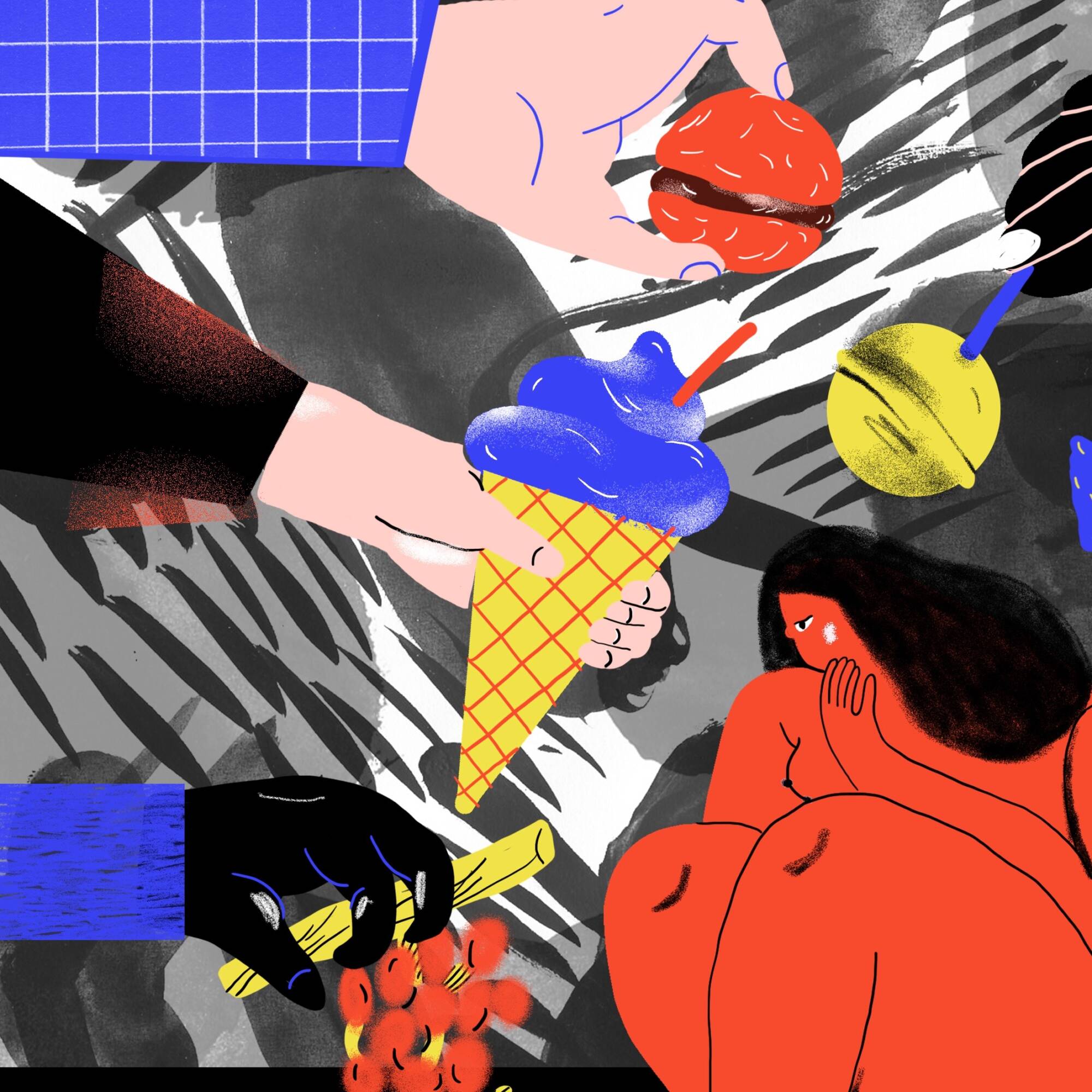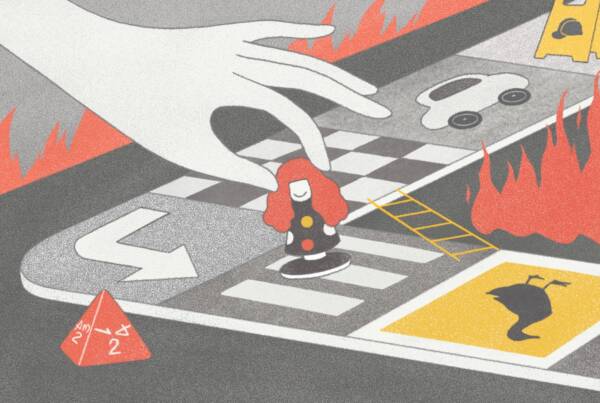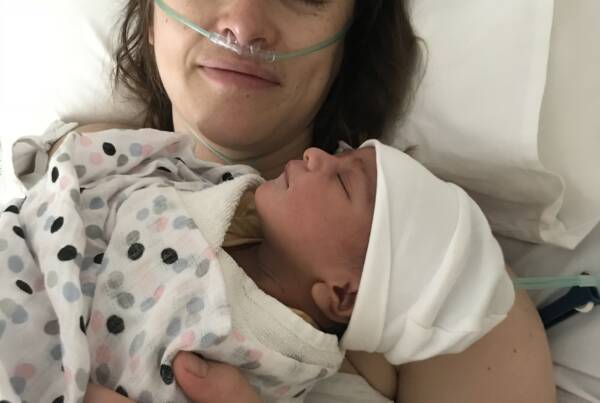Writing by Freya Madders // Illustration by Franz Lang
Writing by Freya Madders // Illustration by Franz Lang
As a society, people can often tend to view anorexia as a lifestyle choice that adolescent girls with vanity and body image problems face. But it is so much more complicated than that. It is a life-threatening illness that both psychologically and physiologically deflates any sufferer. It’s a scary reality when you learn that you can’t trust your own thoughts and perception. It’s frightening when multiple health professionals tell you that your brain has been “hijacked” and you can’t think clearly due to malnourishment. It’s terrifying when you’re told that anorexia nervosa has the highest mortality rate of any mental illness in Australia and 40 per cent of people never fully recover but remain tormented their whole lives. To make things worse, today there are only 32 per cent of sufferers getting any treatment. That leaves a sick 68 per cent of people who are suffering, with no support at all. No one would choose to feel unworthy, undeserving, so controlled by a number on a scale, by the number of calories on a packet, by ingredients used within a meal or by how much exercise they do. They wouldn’t choose to feel that their self-worth is based solely on numbers. It is an illness that takes the joy out of life, that takes away the possibility of new experiences and opportunities. It’s living with a constant bully inside your own head, constantly telling you to trust it and nothing else.
Every Monday morning, the EDP patients go into the nurse’s office to be weighed. Following this, there is a Ward Round all morning which involves each patient individually going into a room and talking to the team of psychiatrists, psychologists, head nurse, dietician and program’s coordinator about the highs and lows of the week that has passed. Mum and dad would always come to these for support as there were times when I was too upset to say anything and so they spoke instead.
During my second Ward Round, I was told at the beginning that I’d restored what they called a “significant” amount of weight that week and honestly can’t remember the rest of what was said in that session. Instead of listening to everyone around me that day: my parents, a psychiatrist, psychologist, dietician, GP and nurse who were all saying what an achievement that restoration had been, their congratulations were completely muffled by an internal voice telling me they were all out to get me and that I’d done the worst thing possible for myself.
During this struggle, I always felt like I was being punished for something or that I deserved to be punished and I couldn’t understand why – I’d always tried hard, been a hard worker, a good friend, a loyal sister and daughter, stuck true to my values and beliefs, honoured my commitments. I’d never shown malice or wanted to hurt anyone – I always just wanted to be better. I didn’t understand why more and more my own thoughts started to treat me like a punching bag.
“You’re not thin enough”
“You’re not fit enough”
“You’re not smart enough”
“You’re not good enough”
On the Tuesday following my fourth Ward Round I had yet another meltdown. My weight had remained stable this week and I knew I had a meeting scheduled with the dietician about a meal plan increase. I tossed and turned the whole night before. I knew I wouldn’t be able to handle any more food. I knew that the thoughts would be too strong and I would just work harder to compensate for any more food that I was made to eat. I’d vomit, I’d exercise, I’d hide food when no one was looking. Eating disorders have a very sneaky nature and I even surprised myself with what it could get away with in such a supervised environment.
I had this part of me, the ‘healthy’ sliver, that didn’t want my eating disorder to be able to get away with things anymore. So when I told the staff about what I’d done in order not to restore weight in the past week, which included exercising secretly in my room, hiding food and purging in the bathroom, they decided not to increase my meal plan but to take away all my leave rights. I felt like I’d gone completely backwards, right back to square one where I had started in my first week here. With only ten days left of the program, the staff didn’t even trust that I’d be able to have a snack out with my parents. I felt so deflated and lost. Recovery seemed so far away all of a sudden. I started to question all the progress, if any, I’d made in these past thirty days and whether I’d just been yet again putting on a façade that I was making improvements. My eating disorder was still so strong and my life still revolved around obeying its rules. When will it stop? How will I break the cycle? I had an individual session with the ‘Consumer Consultant,’ Beth, a woman in her late 20s who has been recovered from anorexia for almost a decade. I felt as though I was speaking to myself as she spoke. She knew exactly how I felt and said that she’d been there too but come out the other end. After our chat, I felt relieved once again. I’d be able to dig myself out of the hole full of sadness, frustration and anger that I keep falling into. Beth reminded me that you do get out of that hole, and one day will come when you get out and never go back down.
After these kinds of inspiring sessions, you think you’ve turned a corner. For me personally, I remember thinking that something had clicked over in my brain. I would tell myself to keep focusing on all my motivations to get better, remind myself of all copious support I had from family and friends, repeat that I’d struggled for what feels like a lifetime, cried many tears so surely all of this had to come to an end soon. But funnily enough, that Saturday, just four days later I was in tears yet again. Dad was sitting next to me, talking about travelling to New York, a trip we’ve been planning with the whole family for the end of the year, and all I could think about the size and shape of my stomach as I sat next to him. Sad, isn’t it? My ED wouldn’t let me be happy about anything. As much as Dad tried to take my mind off the thousands of thoughts racing through my head, it was as if everything else in the world was blurred and it felt as though nothing was going to be able to dig me out of the hole this time. As I burst into tears, I could barely get a word out so he just sat there, staring at me at a complete loss. I blurted through sobs that everyone around me, everyone who supports me and loves me, keeps on telling me that things will get better and I will feel better eventually but when? That is the question I want answered and still nobody knows. I wanted and still want to know that all this pain and suffering, every day in here which has been full of so many challenges, will be worth it one day. Everyone says it will be, but where’s the proof? When will I feel better? When will the way I think about myself and my body change? When will the day come where I wake up as I feel like I am enough?
Only during my admission did I start to comprehend how much this illness had taken over my family’s lives. It wasn’t only destroying me but it was destroying them and had been for years now. This is such a selfish illness and I was making them go through hell with me. Constant worry, constant support, giving up everything to take care of me while I battled. My eldest brother was driving down to Geelong for the weekend, having worked full-time all week, missing out on Saturday night footy events with his friends just so he could sit in my room with me while I would cry for hours. My Dad had given up the most- he started working full-time at home while I was an out-patient, he stopped exercising because I couldn’t handle it, he started eating every meal and snack with me so that I could cope. Mum and Dad rented a house in Ocean Grove during my time at the Clinic so that they’d be able to visit me every night to keep me company. This was what got me through everyday – being able to look forward to seeing them. And it made me so grateful when I compared myself to other patients around my age whose parents didn’t come once. How are they meant to get better? How are they meant to keep going? Of course they keep ending back up in an inpatient setting because they can’t rely on anyone but their ED when they get out.
Not only my family, but my friends were supporting through this process. My closest friends came down several times throughout the admission. I was so grateful to all of them but their selflessness also served as a reminder for how strong and selfish this illness really is. Because despite all their love, support and effort – which I knew the “healthy” me appreciated more than anything – my eating disorder would still find sneaky ways to triumph.
When Nick came to pick me up one afternoon to go out together, I was so excited to see him. I’d been looking forward to it all week, just having some quality time with my brother. But, as ashamed as I am to admit, there was also this sick side of me that was thinking of it as a way to cheat and get out of eating what I’d otherwise need to have at the Clinic. Only four days until my admission at Geelong was over and my eating disorder was still obsessed with finding ways to limit my intake and cut corners, no matter who it hurt in the process. This was a real turning point moment for me because I was caught out and my eating disorder didn’t get away with cheating this time. Nick called Dad who told him he had to take me back to the Clinic straight away if I didn’t eat. And I still refused to do so. I realised that my love for my family will triumph over anything – even something as strong as an eating disorder. After my brother dropped me off, with the most disappointed and saddened look on his face that I’ve ever seen in 19 years of being his sister, I just knew I couldn’t keep letting my eating disorder win. I love my brother more than anything – me, the real Freya – but my eating disorder, it couldn’t care less about anything else except for weight and how to control it. I never wanted to see that look on my brother’s face again and I honestly can’t live with myself if I was ever again the cause of his sadness. I told myself from that moment on that yes, I knew I would have eating disorder thoughts, I knew it would yell at me for hours and days on end but I would conquer this, not just for me, but for my brother. I did all of a sudden feel stronger. I felt like there was something worth fighting for – and that was the happiness of my family and knowing that continuing to fight every day and working towards recovery was the only way to ever make them truly happy again.
On Friday, 12th August I arrived home. It was an odd feeling the morning that I left. Everyone who I’d met in the program, every patient and nurse, had been lovely. All the patients were people who I believed to be capable of better things and worthy of a better life. They, like everyone with this illness, don’t deserve to be suffering the way they are. Saying goodbye to some of the friends I’d made was hard. Saying goodbye to the nurses was even harder. I’d learnt to use the nurses to confide in. They really got it – I wouldn’t even have to approach one of them when something was wrong, they’d just know. I’d especially been able to have confidence in one nurse, Kristen, who was one of the most caring people I’d ever met. I could just tell whenever speaking to her that she truly wanted me to get better and see me living a better life. I gave her a huge hug as I said goodbye and walked out the door. The further we drove away from the hospital, the happier and happier I felt. I’d done it. I’d gotten through the forty days; something I never thought that I’d be able to do. But of course, the work wasn’t over yet. As Ingrid told me time and time again, a stay in Geelong was never going to be a cure and no one recovers from anorexia in forty days.
Three days later on the Monday afternoon at Ingrid’s office, I was faced with the harsh reality that the hardest work really starts now.







